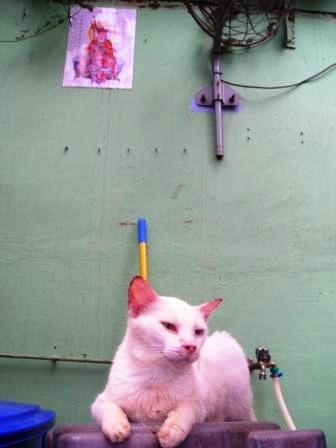Animal Liberation
放生
Many Chinese and Buddhists practice the custom of animal liberation, 放生, - releasing animals back to the wild. The released animals are those caught for sale to humans for consumption or be kept as pets. Vesak day is a popular time for animal liberation.
Animal liberation - act of compassion
Buying captured animals and releasing them back to the wild saves them from being slaughtered for consumption as food or a life in captivity. This custom treats animals as fellow beings and the freeing them is an act of compassion.
Animal liberation made sense in earlier times or in economies where animals are caught from the wild for sale at the market.
However, for most consumers, the global food chain has changed so drastically that the custom of animal liberation needs to be reconsidered.
Animals and global supply chain
Today, many animals are not captured but bred in captivity and sometimes have to endure crowded and inhumane living conditions.
Cows and pigs for example are kept in cramp spaces and fed food to fatten them up, sometimes with the help of growth hormones. Chickens are also kept in enclosed spaces and sometimes their beak and claws are clipped to prevent them from injuring each other.
Once the animals reach the suitable age, they are sent to the slaughter house where they are pushed towards death with tears in their eyes.
Other animals such as fishes and seafood are bred in fisheries or artificial environments.
Meanwhile, pets such as dogs, rabbits, birds, fishes are also bred in captivity for sale as pets.
These animals are not caught from the wild and are dependent on humans for their survival.
Animal Liberation reconsidered
Buying these animals for release to the wild does not free them from suffering. Instead, they experience another form of suffering.
Being bred in captivity, most do not have the ability to survive in the wild and they will die a slow, frightening and painful death.
For those who managed to survive, another set of problem arises. The globalised supply chain means that many of the animals consumed or sold as pets are not native.
Releasing them to the wild can throw the local ecosystem into disequilibrium with serious consequences.
Animal Liberation in urban environment
Taking in to consideration these issues, urban consumers need to adjust the custom of animal liberation.
That is not to say that the custom is irrelevant, just changes in response to the larger environment.
Vegetarian lifestyle
For a start, to prevent more animals from being slaughtered for food, the best solution is to be a vegetarian.
This takes time and may occur in stages for different people. A compromise is to eat only what you need, avoid consumption of dishes such as sharks fins soup. Also consider a meat free day once a week and perhaps increasing the duration over time.
These lifestyle changes on a collective level reduce the aggregate demand for meat.
Avoid fur and leather products
Another option is to aviod fur and leather products. There are many materials that can help us look smart, fashionable and presentable.
The fur is the animal's only piece of protection against the environment or predators but humans have many choices.
Taking an animal's life to look good does not look good at all.
Support animal protection groups
Instead of releasing domesticated animals to nature and creating problems, we can support organizations that care for abused or abandoned pets.
Each year many pets are abandoned by owners because they cannot afford to care for them or even because the pets have fallen out of fashion.
Abandoned pets and community cats and dogs are also deliberately targeted by perverted individuals who maim or murder the innocent animals.
Left unattended, these animals often die a very painful death or are caught by unenlightened organizations that put them to sleep. Animals should not have to bear the cost of human's urbanization and have a right to be loved and cared for.
Comapssion for all beings
Fortunately there are many organizations with volunteers who care for these animals. They rescue abandon animals, sent abused ones for medical treatment, provide them with a shelter and more importantly shower them with lots of loving kindness.
Therefore, the urban alternative to releasing animals to the wild is to support such organizations. This is considerd by some as a form of protecting life, 护生, and achieves the same effect as animal liberation, 放生.
MettaCats is one such organization that Chinatownology have featured and you can also search for others near you. International organisations include PETA, Animals Voice, Vegan Peace and Compassion over killings.
Animal Liberation with wisdom
Animal liberation is an act of compassion and should be encouraged. Afterall, animals are fellow beings who inhabit and share our physical landscape.
Let's also do it with wisdom so that we maximize the benefit of this ancient custom.
Related Articles:

Eat, shop & Travel resources:
External Links:
MettaCats website: www.mettacats.org
MettaCats Facebook: MettaCats
Image source:
www.veganpeace.com
www.animalsvoice.com
www.peta.org
www.cok.net
|

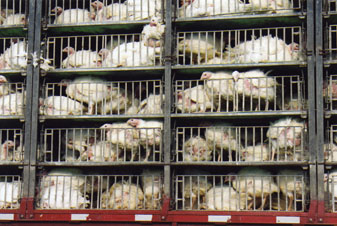

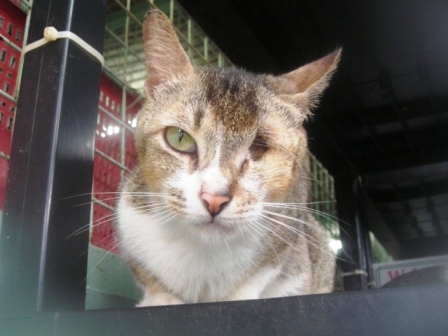
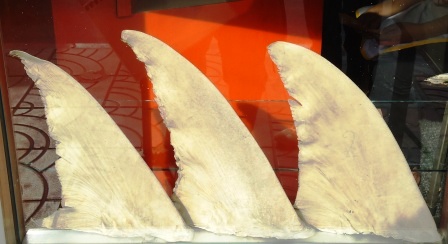
32.jpg)
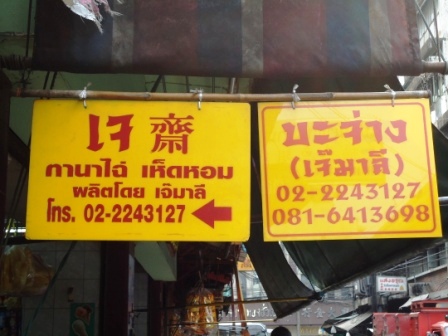
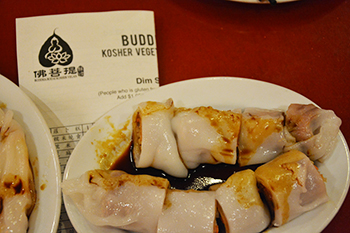
29.jpg)
